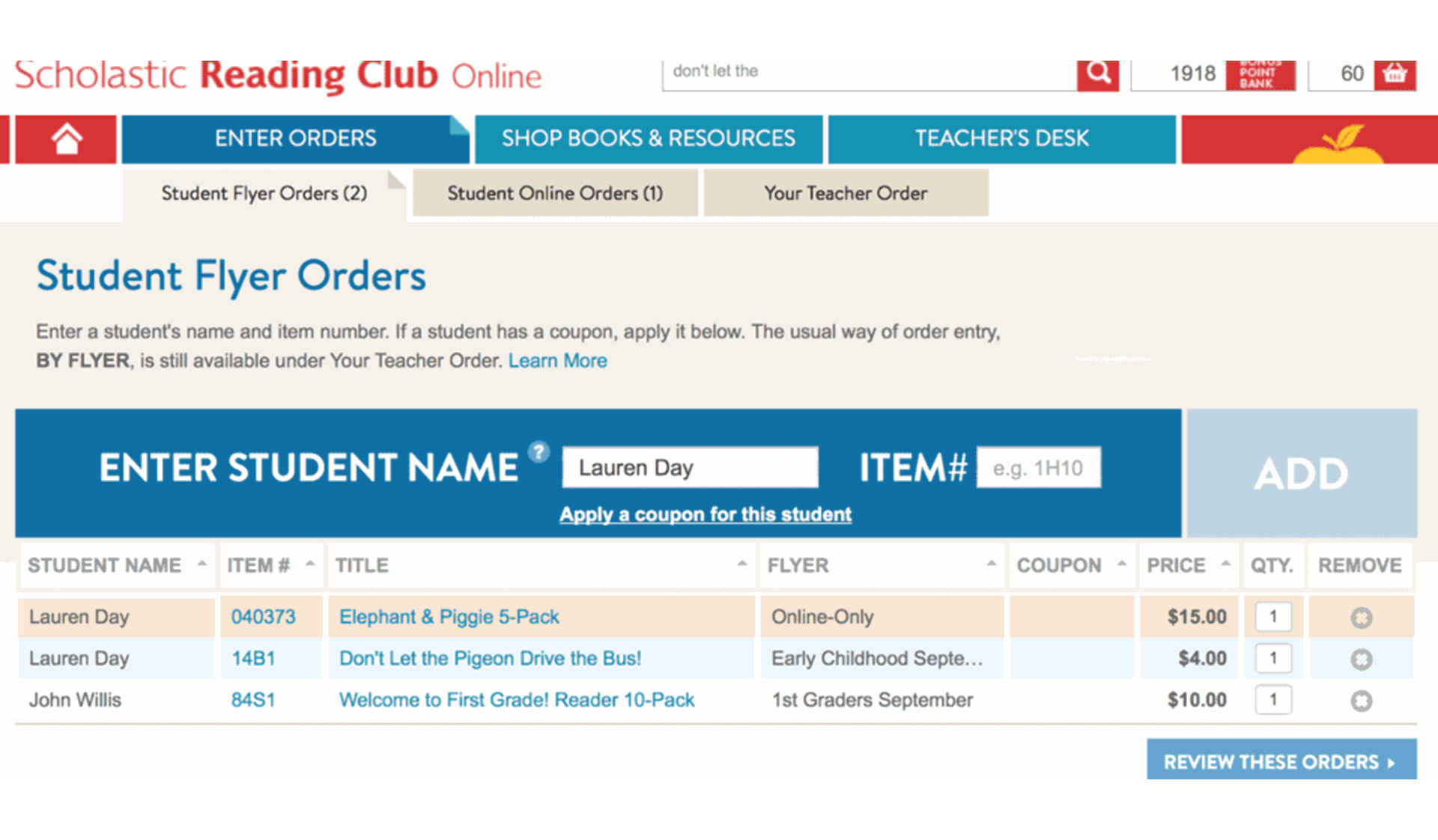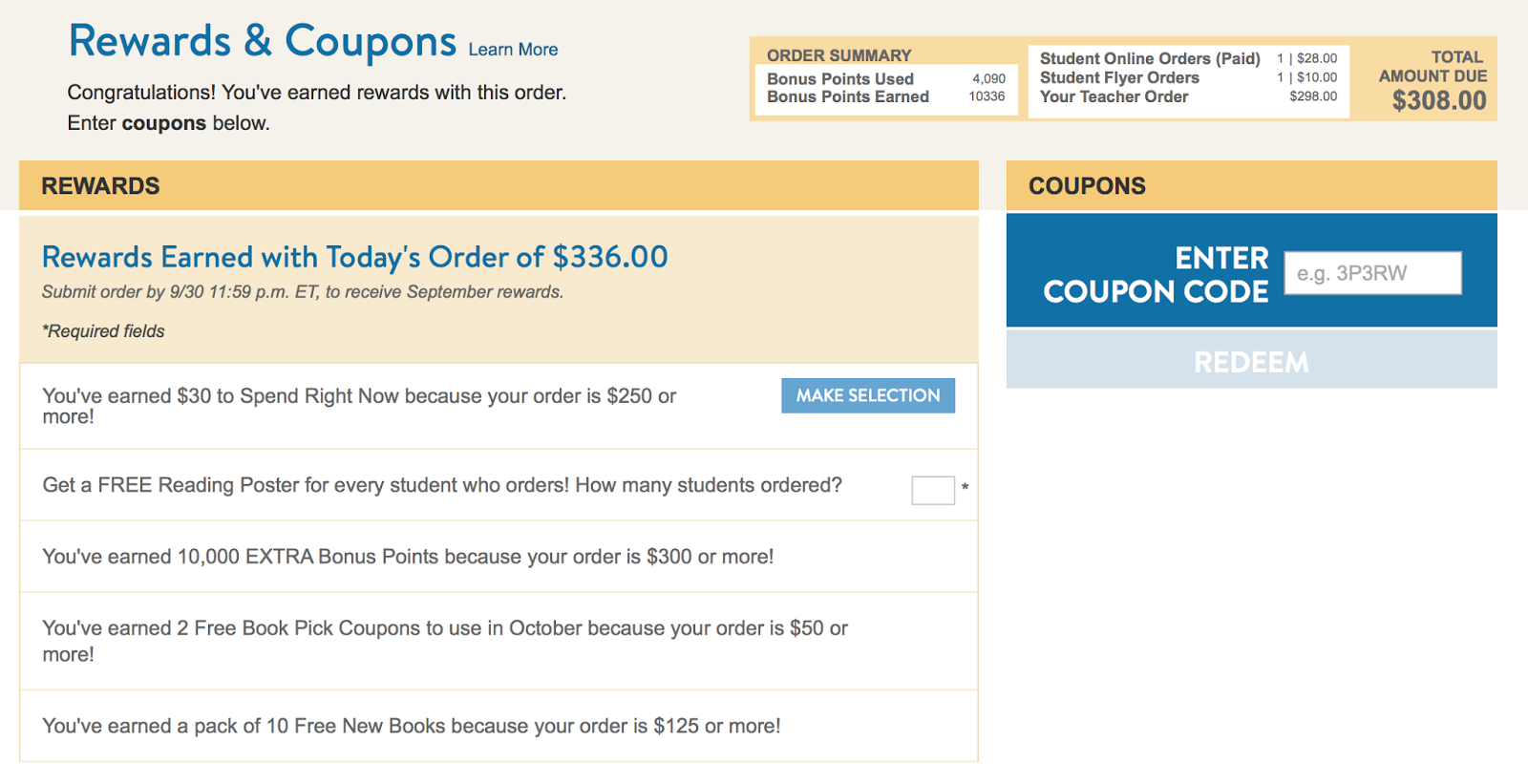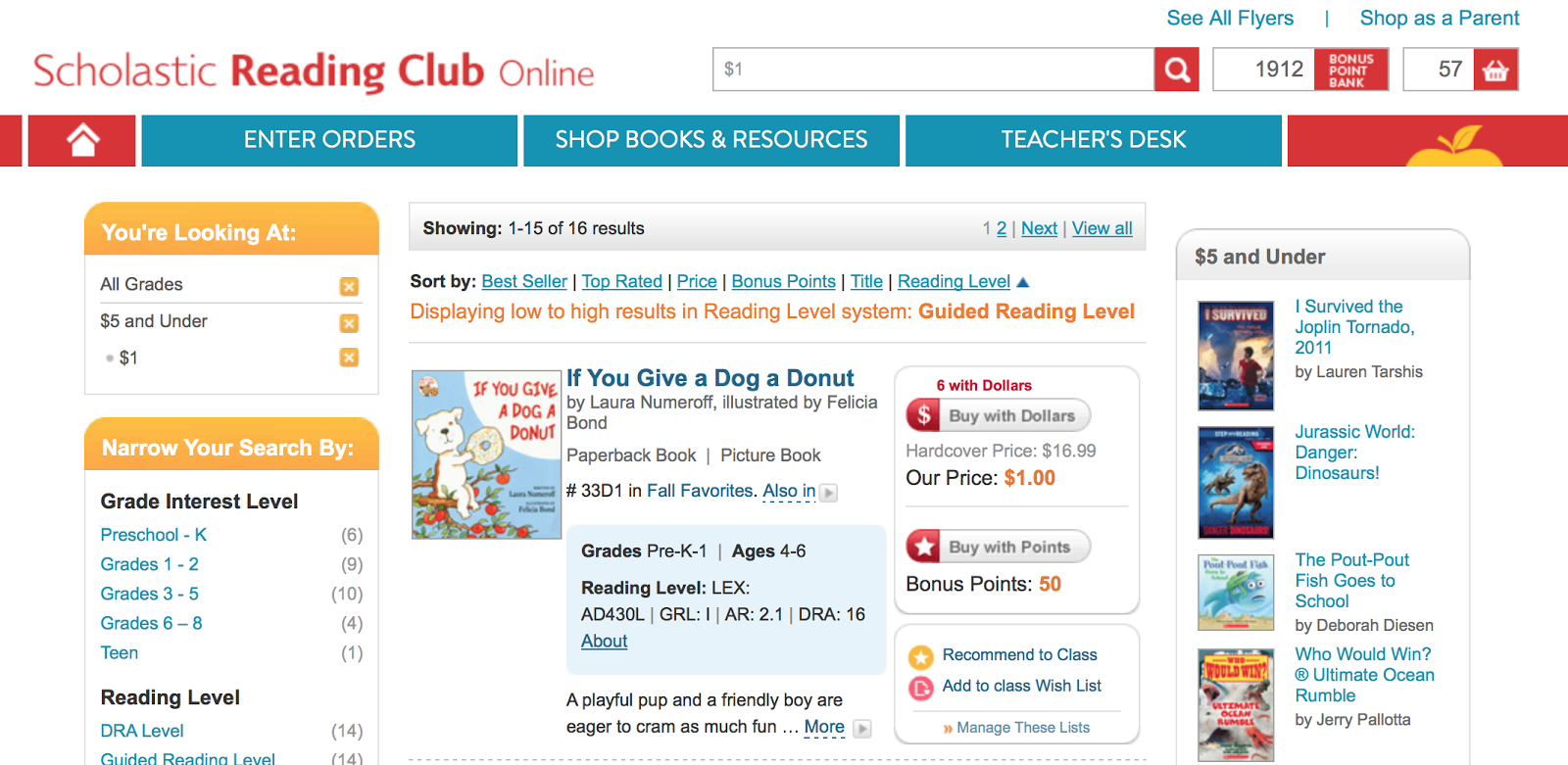
Case Study
Scholastic Reading Club
Competencies
Remote Usability TestingScholastic Reading Club is an online platform where families and educators can access a wide selection of affordable, high-quality children’s books curated by grade level and reading ability. Operated by Scholastic, a trusted leader in children’s publishing and education, the site allows parents to order books that are delivered to their child’s classroom, while helping teachers earn free books and classroom resources. With seasonal flyers, personalized recommendations, and exclusive offers, Scholastic Reading Club makes it easy to foster a love of reading at home and support literacy development in schools.
Project Kick-Offs
Each project with Scholastic Reading Club began with collaborative planning sessions to clarify the objectives and desired outcomes for prototype evaluation. For both the TCOOL (Teacher-Centric Online Ordering Layout) and PCOOL (Parent-Centric Online Ordering Layout) prototypes, the primary goal was to assess the usability of redesigned features that supported classroom book ordering and parent shopping experiences. Early stakeholder discussions emphasized the importance of simplifying workflows, improving parent-teacher communication, and aligning online interfaces with user expectations shaped by paper flyers and existing classroom habits.
The teacher-focused TCOOL studies aimed to evaluate new versions of the Teacher’s Desk dashboard and order entry processes. Meanwhile, the PCOOL studies sought to understand how parents navigated tasks like connecting to their child’s teacher, browsing for books, and checking out using various prototype versions over multiple testing rounds.
Media
Methodolgy
Each study employed remote moderated usability testing. Sessions were one hour long, included a guided think-aloud protocol, and were structured around key task flows relevant to each audience.
Participant Recruitment:
- Teachers: Recruited across a range of experience levels and Apple Status tiers (Green, Red, Gold, or none), all of whom had recently placed online orders. Some invited parents to use PCOOL; others had not.
- Parents: All had children in grades K–6 and had ordered from Scholastic Reading Club within the past year. Loyalty levels ranged from Bronze to Platinum.
Each participant was emailed supporting materials—such as flyers and mock parent letters—to simulate realistic ordering scenarios. Compensation ranged from $100–$125 in gift cards.
Testing multiple iterations over time allowed the team to validate incremental design changes and verify whether user understanding improved with adjustments.
Project Completion
Over the course of several iterative studies between 2013 and 2016, Scholastic Reading Club and Usable Interface conducted comprehensive remote usability testing for both teacher and parent interfaces.
TCOOL (Teacher Usability Studies):
Multiple rounds of testing evaluated the Teacher’s Desk dashboard and order management tools. Teachers tested features such as student paper order entry, classroom wish lists, order status tracking, and parent communication modules. Across rounds, usability improvements led to noticeable gains in participant satisfaction. Teachers appreciated the organization of the new Teacher’s Desk, clearer order submission workflows, and features like automated reminders and class wish listsScholastic Reading Club…Scholastic Reading Club.
PCOOL (Parent Usability Studies):
Parent-facing prototypes were tested in parallel, with each round focusing on specific task flows (e.g., account creation, shopping by flyer, search functionality, and checkout). Participants responded positively to the design’s visual clarity, the ability to shop by child, and wishlist sharing. However, changes to how product information and teacher recommendations were displayed required refinement to better align with user expectationsScholastic Reading Club…Scholastic Reading Club.
In total, these studies informed dozens of design changes that improved usability across the Scholastic Reading Club platform. The iterative, evidence-based approach helped ensure that both teacher and parent audiences could efficiently complete their tasks while feeling supported by the interface design.
"Kyle has such a good understanding of us and our business!"
Betsy Poris
VP, Strategic Marketing
Scholastic Book Clubs


